When will South Korean president Yoon Suk Yeol be impeached and what happens next?
Opposition Democratic Party introduces impeachment bill against Yoon
Your support helps us to tell the story
From reproductive rights to climate change to Big Tech, The Independent is on the ground when the story is developing. Whether it's investigating the financials of Elon Musk's pro-Trump PAC or producing our latest documentary, 'The A Word', which shines a light on the American women fighting for reproductive rights, we know how important it is to parse out the facts from the messaging.
At such a critical moment in US history, we need reporters on the ground. Your donation allows us to keep sending journalists to speak to both sides of the story.
The Independent is trusted by Americans across the entire political spectrum. And unlike many other quality news outlets, we choose not to lock Americans out of our reporting and analysis with paywalls. We believe quality journalism should be available to everyone, paid for by those who can afford it.
Your support makes all the difference.South Korea’s ruling party has vowed to unite against the opposition-led impeachment motion against president Yoon Suk Yeol after his abrupt and widely condemned decree of martial law.
Floor leader Choo Kyung-ho said: “All 108 lawmakers of the People Power Party will stay united to reject the president’s impeachment.”
The motion, introduced by the opposition Democratic Party, follows Mr Yoon’s chaotic attempt to suppress political activity and media, which sparked mass protests and led to his reversal of the order.
The liberal opposition, holding 192 seats in parliament, requires the support of at least eight of the 108 ruling party lawmakers for the impeachment bill to succeed, with the vote expected to take place on Saturday.
The Democratic Party introduced the impeachment bill against Mr Yoon on Wednesday. The vote, requires a two-thirds majority (200 lawmakers) to pass, and must occur within 72 hours of the bill’s reporting, Hankyoreh Shimbun reported.
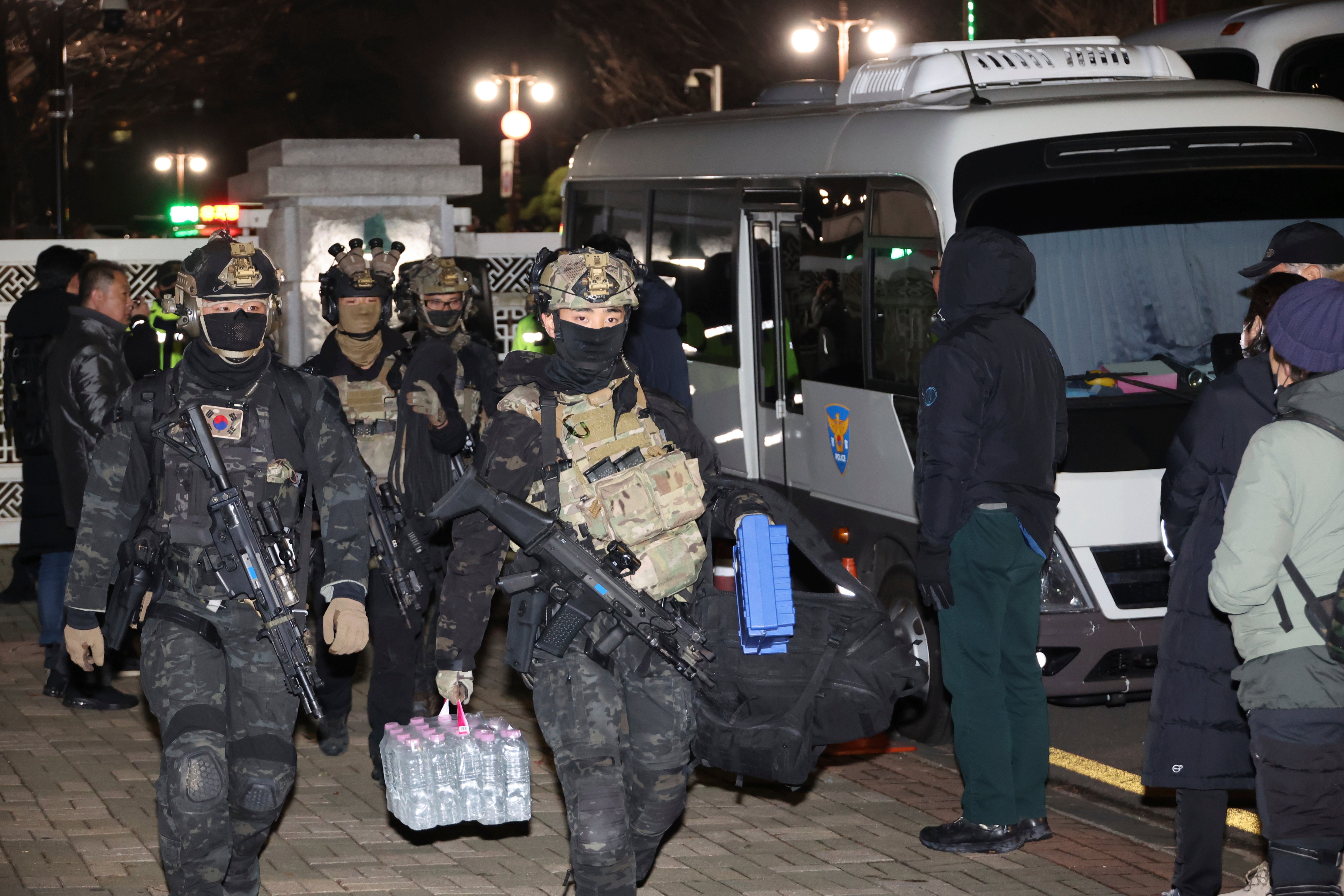
When did it all start?
South Korea's president Yoon Suk Yeol declared martial law in a surprise late-night television address, invoking the threat from North Korea and accusing the country's opposition of paralysing the government by controlling parliament.
He did not cite any specific threats from Pyongyang and focused on his political opponents.
"I declare martial law to protect the free Republic of Korea from the threat of North Korean communist forces, to eradicate the despicable pro-North Korean anti-state forces that are plundering the freedom and happiness of our people, and to protect the free constitutional order," Mr Yoon said.
South Korea’s parliament then voted through a motion calling the declaration invalid. This was the first time in over four decades that the country had been put under martial law.
Mr Yoon is now facing calls to resign or face impeachment.
Here The Independent lays out what martial law is and what it means for South Korea.
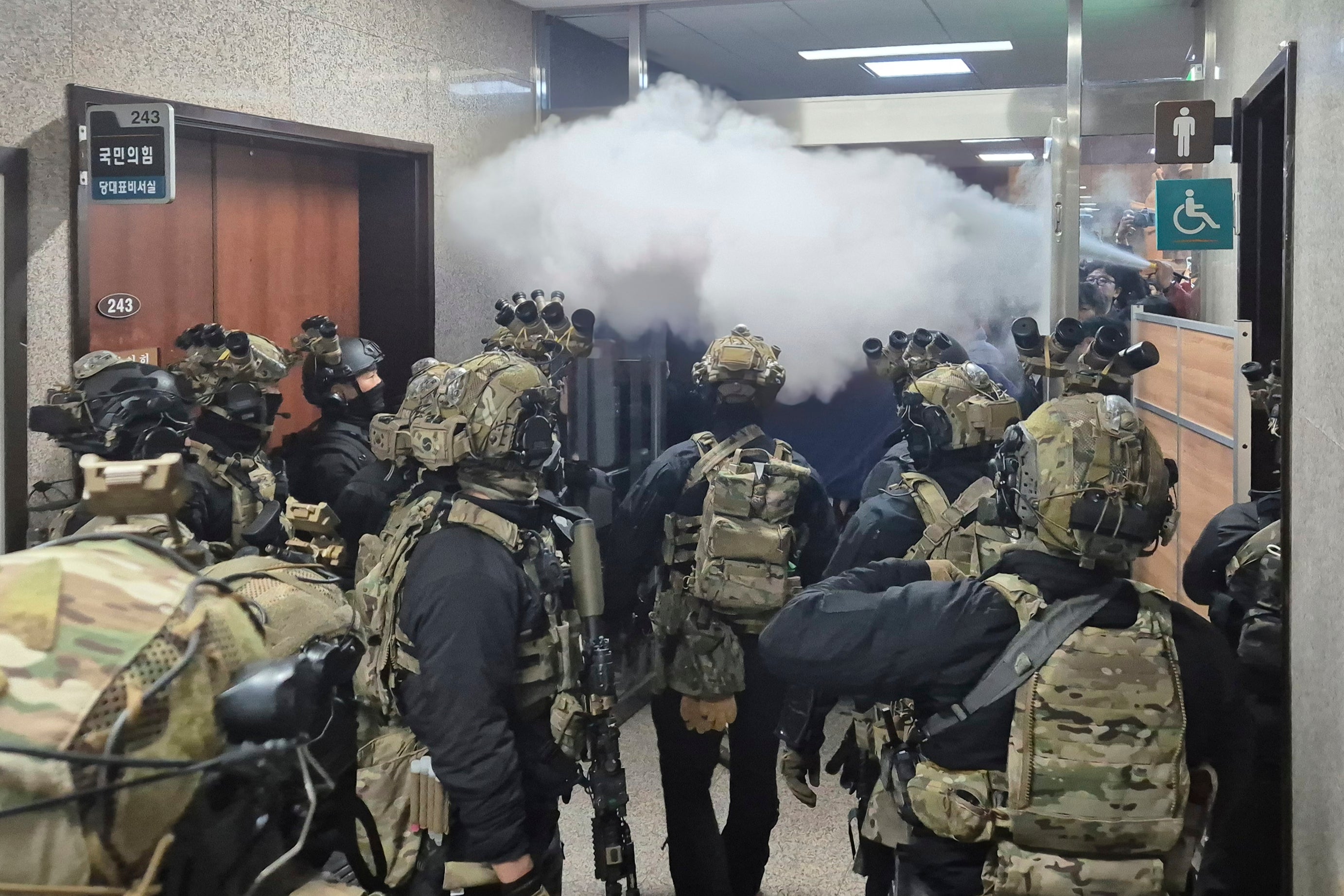
What is martial law?
It is the rule by military authorities in an emergency, at times when civil officials are deemed to be unable to function. It often involves the suspension of civil rights and the extension of military law. President Yoon has not been clear about what restrictions will be in place, but the Yonhap news agency cited the military as saying activities by parliament and political parties would be banned, and that media and publishers would be under the control of the martial law command.
Martial law often also restricts public protests, strikes and potentially other forms of public gathering.
The military also said that the country's striking doctors should return to work within 48 hours, Yonhap said. Thousands of doctors have been striking for months over government plans to expand the number of students at medical schools.
Those who violate martial law can be arrested without a warrant, local news agencies said.
"Tanks, armored personnel carriers, and soldiers with guns and knives will rule the country," Lee Jae-myung, leader of the opposition Democratic Party, which has the majority in parliament, said in a livestream online.
Martial law is in theory temporary, but in nations where it has been imposed, it has often been extended – and may continue indefinitely in some cases.
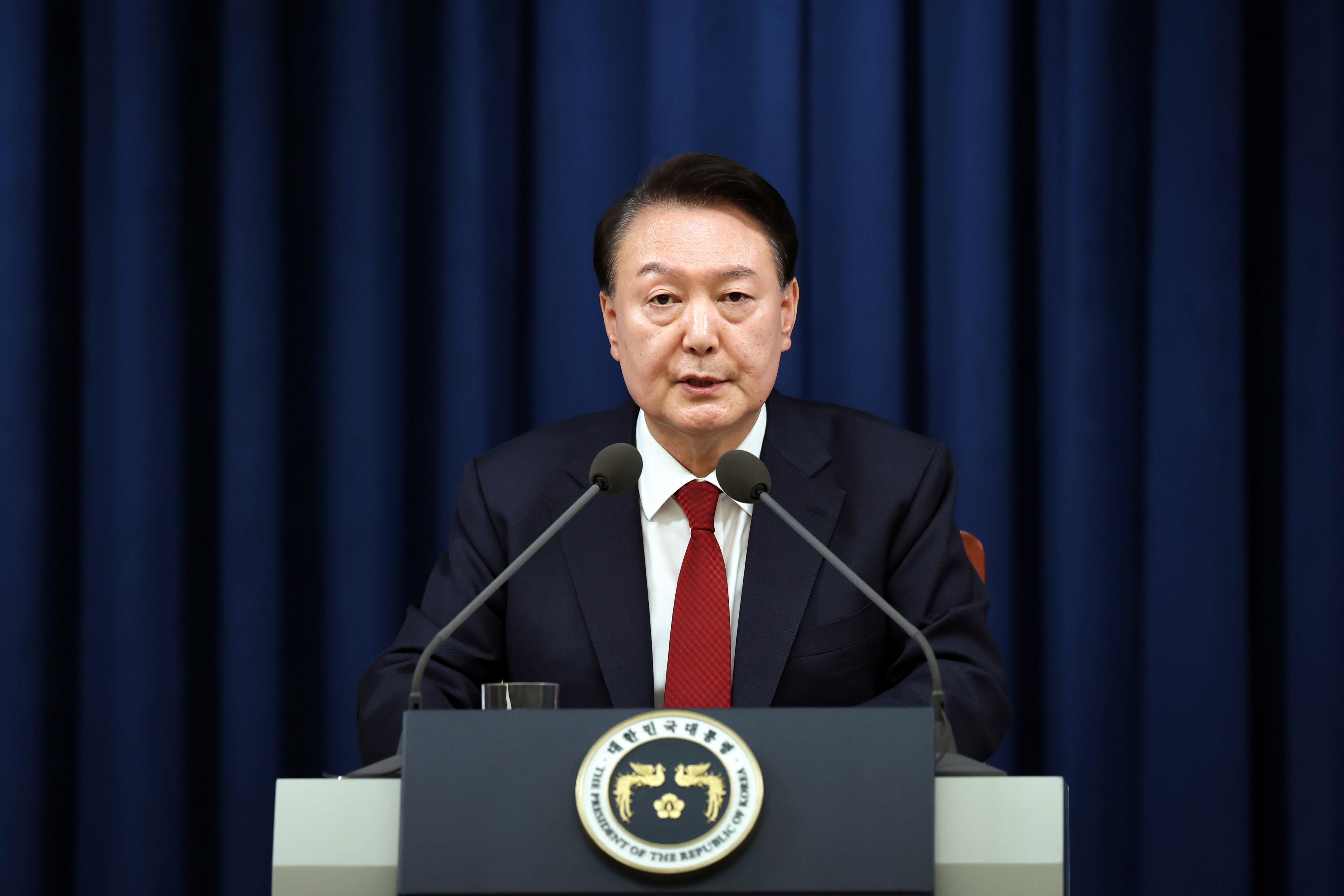
South Korea’s Constitution states that the president may proclaim martial law when “required to cope with a military necessity or to maintain the public safety and order by mobilization of the military forces in time of war, armed conflict or similar national emergency.”
The martial law commander, appointed by the president on the recommendation of the defence minister among active-duty generals, has the power to take actions related to arrests of persons, search and seizure, speech and the press, and assembly.
The commander has authority over all administrative and judicial matters.
Why did the president declare martial law?
Mr Yoon has previously spoken about pro-North Korean, anti-state forces hindering his agenda, without going into detail. It is a simple threat to cite, given the fact the two nations have not officially been at peace since the Korean War ended in an armistice in 1953. Decades of animosity have followed, with repeated military drills, rocket firings and nuclear threats. Pyongyang has recently stepped up its ties with Russia, sending thousands of troops, missiles and ammunition to support Moscow's invasion of Ukraine, a development that has deeply worried Seoul at a point when relations between the two nations are at a low ebb.
The bigger factor may be the domestic political scene for Mr Yoon, who has been a lame duck president since the last general election was held in April and the opposition Democratic Party helmed by Mr Lee won a landslide. When he won the presidency in 2022, Mr Yoon – a member of the People Power Party, beat Mr Lee by just 0.7 percentage points. This was the closest election since South Korea started direct elections in 1987.
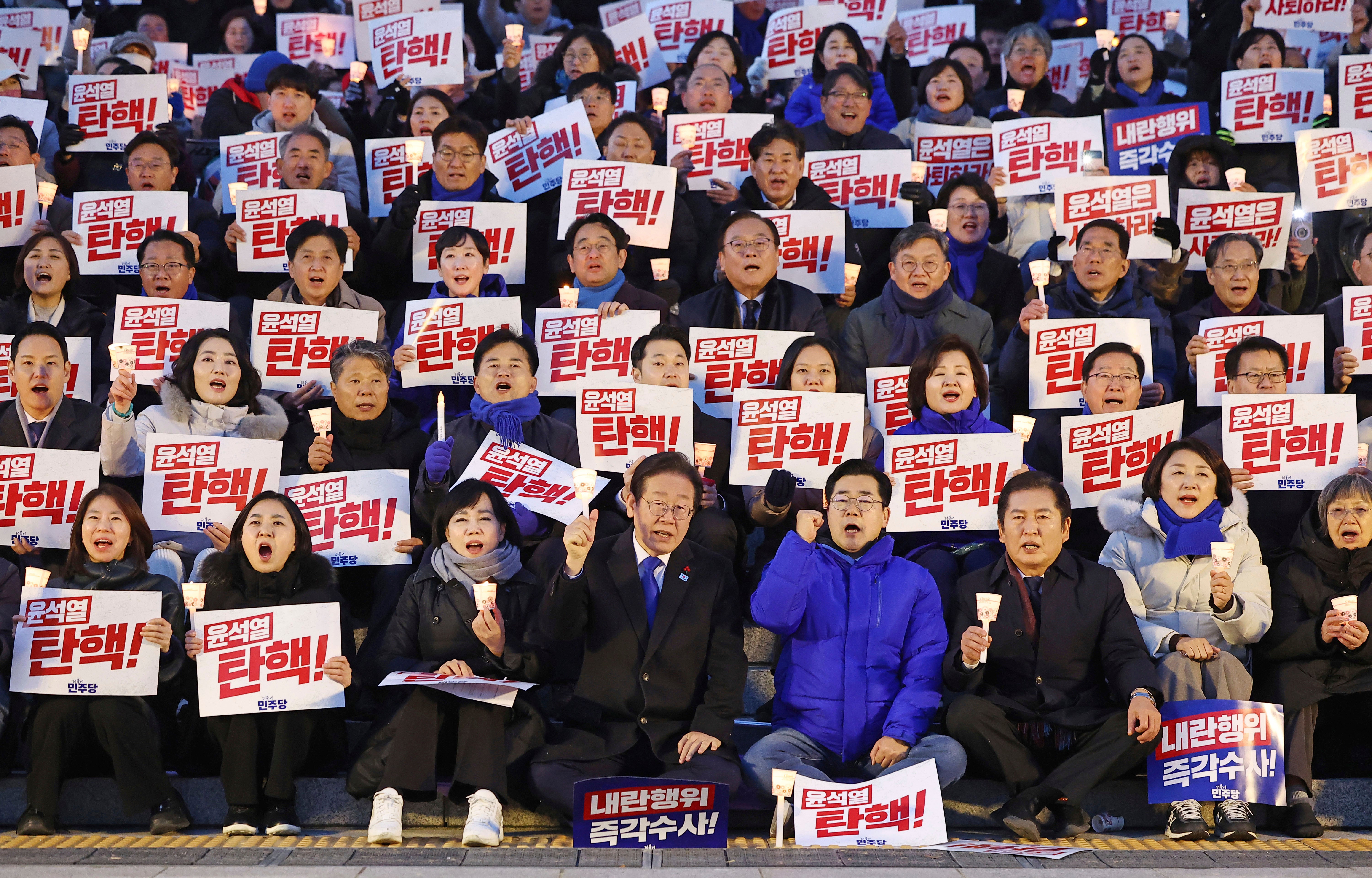
Mr Yoon's ratings in the polls have been low, while he has faced a number of controversies, including his wife, first lady Kim Keon Hee, being accused of stock manipulation by the opposition and a scandal over Ms Kim accepting a luxury Dior handbag. Mr Yoon has said his wife has been demonised and that that the allegations are "exaggerated".
In declaring martial law, Mr Yoon cited a motion by the Democratic Party earlier this week to impeach some of the country's top prosecutors over a failure to investigate the first lady as well as its rejection of a government budget proposal.
South Korea's ministers on Monday protested the move by the Democratic Party to slash more than 4 trillion won (£2.3 billion) from the government's budget proposal. Mr Yoon said that action undermines the essential functioning of the government.
The declaration of martial law was condemned by opposition politicians and even the leader of Mr Yoon's People Power Party, Han Dong-hoon, called the decision "wrong" and vowed to "stop it with the people".
What happens now?
Under South Korean law, martial law should be able to be lifted with a majority vote in the parliament, which the Democratic Party controls. A majority of MPs – 190 out of 300 – managed to make it to parliament and a motion passed calling for martial law to be lifted backed by all 190 legislators there. It is unclear how quickly this will happen, as the military insisted on the president being the one to lift the order given that political activity is banned under the martial law order.
A few hours later, Mr Yoon backtracked and said he will “accept the National Assembly’s demand and lift the martial law through a cabinet meeting”.
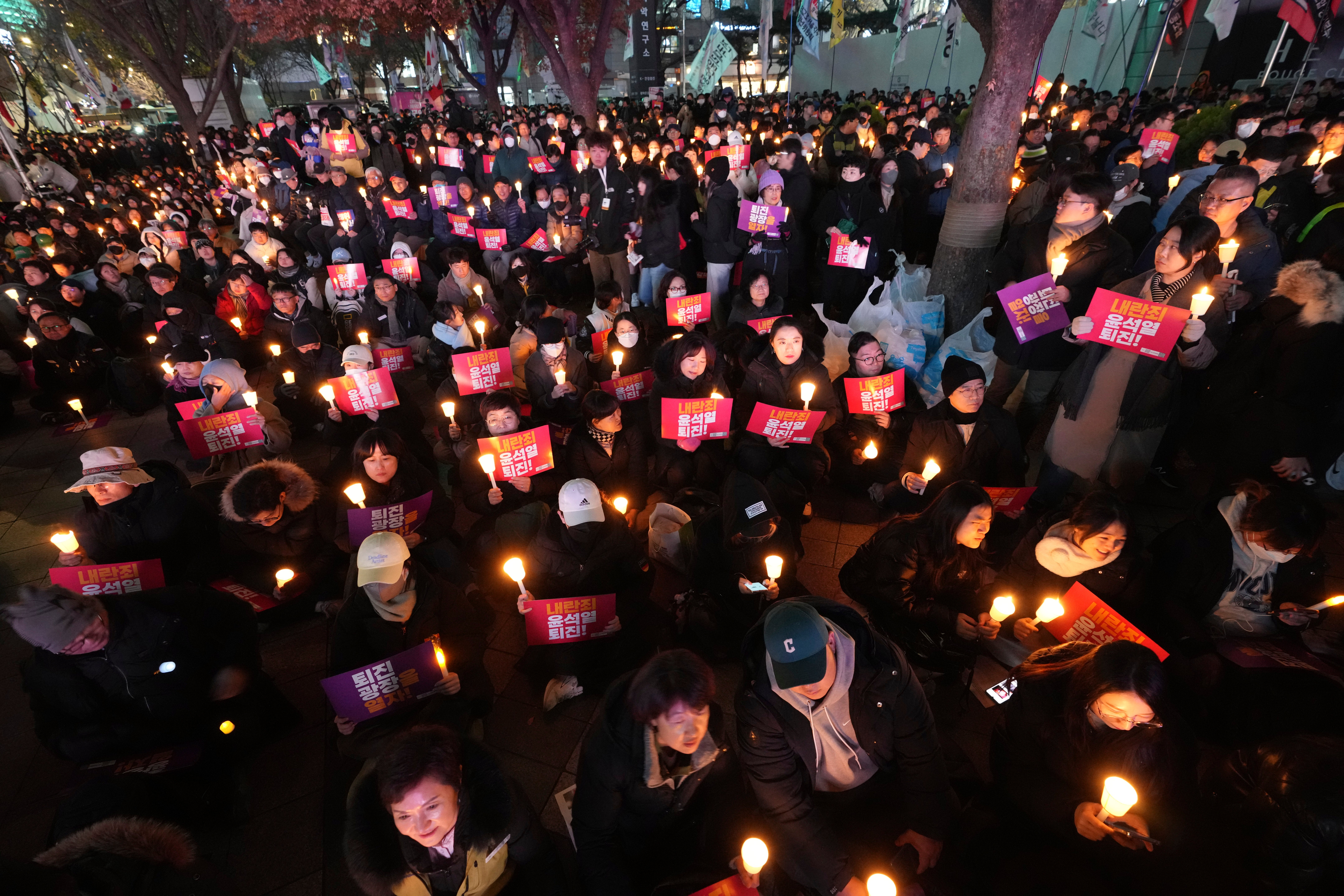
The opposition party has called for Mr Yoon to resign or face impeachment for his destabilising actions. Mr Yoon didn’t offer an immediate public response to the demand. But his office said senior presidential advisers and secretaries for Mr Yoon offered to resign collectively and the president also put off his official Wednesday morning schedule.
Impeaching Mr Yoon would require two-thirds support in the 300-member parliament. The main opposition and smaller parties hold 192 seats, and 18 members of Mr Yoon’s People Power Party opposed him in the 190-0 vote rejecting his martial law declaration. If impeached, Mr Yoon would lose his powers until the Constitutional Court rules on its validity, with prime minister Han Duck-soo stepping in as acting president.
Meanwhile, Mr Yoon accepted the resignation of defence minister Kim Yong-hyun, who reportedly proposed the martial law declaration.
Despite previously dismissing concerns about imposing martial law as “false propaganda”, Mr Kim stepped down, and the president nominated retired four-star general Choi Byung-hyuk, the ambassador to Saudi Arabia, as his replacement.
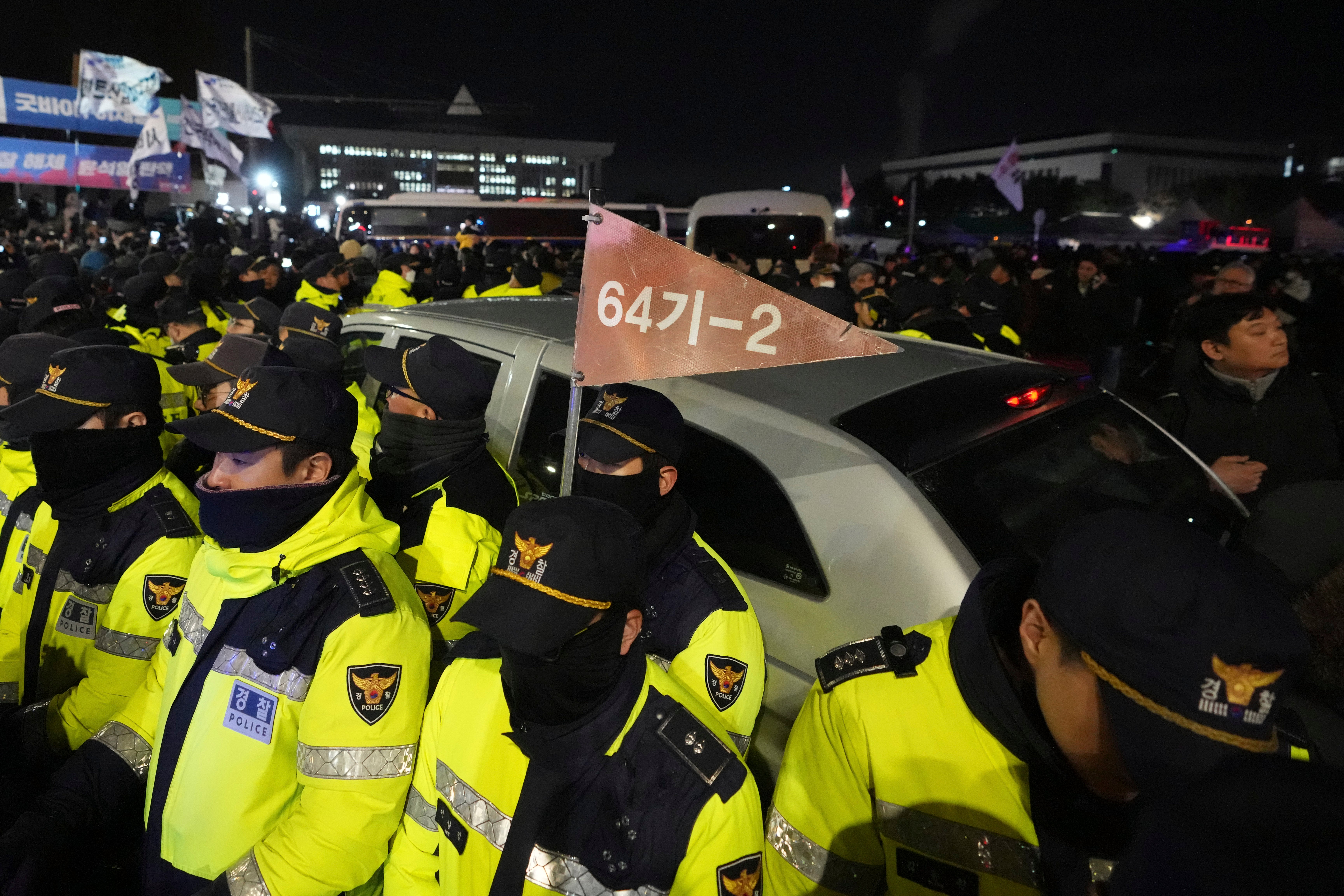
When has martial law been previously imposed?
Before South Korea moved to direct democracy in the late 1990s martial law had been imposed a number of times.
The last time martial law was declared in South Korea was in 1979, after the assassination of the then-South Korean dictator Park Chung-hee, who had seized power in a military coup in 1961.
In 1980, martial law was fully extended after a group of military officers led by Chun Doo-hwan forced then-president Choi Kyu-hah to proclaim martial law to crush calls by the opposition, labour and students for the restoration of democratic government.

Join our commenting forum
Join thought-provoking conversations, follow other Independent readers and see their replies
Comments